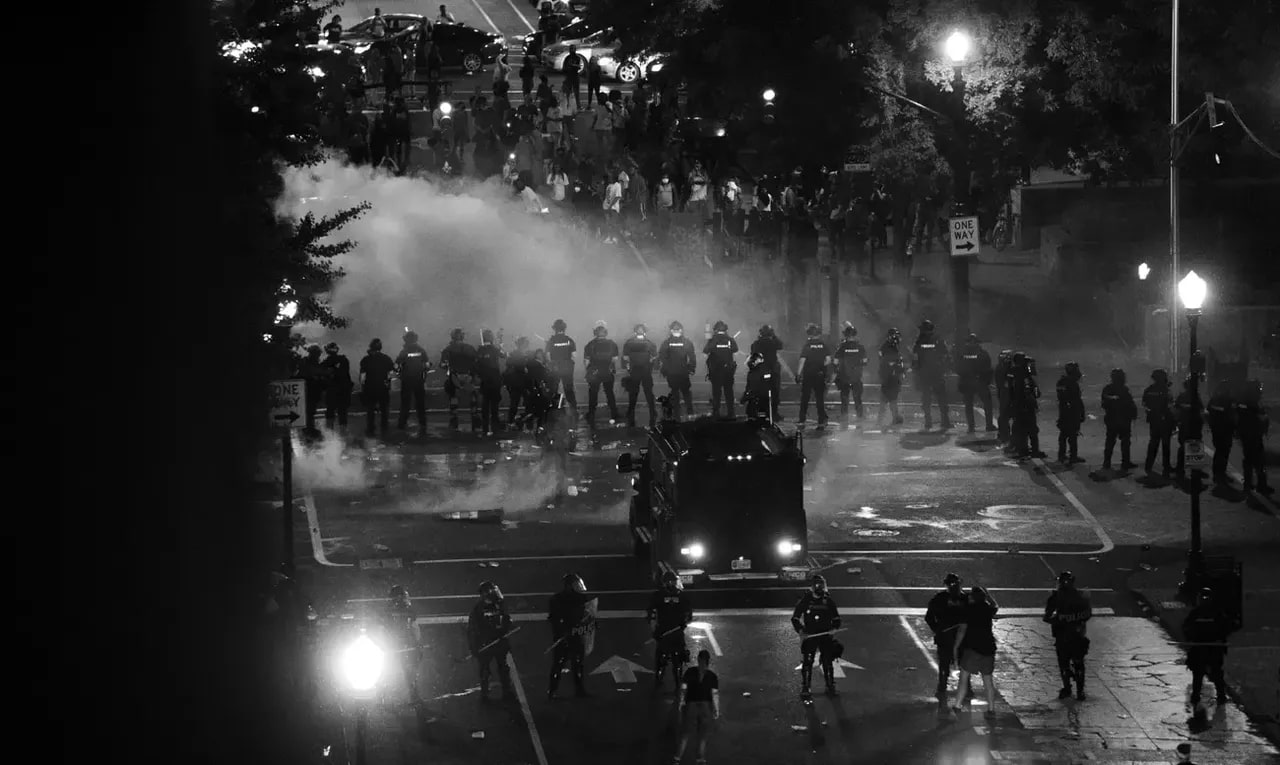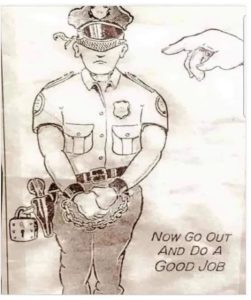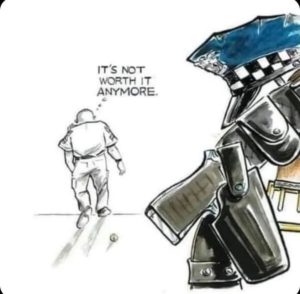Black Lives Matter (BLM) organizations are flexing their new political muscles.
They are pressuring the incoming Biden administration as well as state and local lawmakers to fulfill their personnel and policy demands.
However, their radical ideas could be devastating to the black community leaving minority neighborhoods more lawless and dangerous.
The BLM protests that began in response to the death of George Floyd in Minneapolis, Minnesota earlier this year, triggered a lengthy period of civil unrest.
Many Americans thought they were embracing progress toward greater equality as they chanted or posted #blacklivesmatter.
They were actually supporting organizations that advocated for far-left policies, the cornerstone being to defund police in America.
The constellation of organizations that comprise the BLM movement also have a host of other demands that would undermine public safety in the Black community.
After the November election, BLM has the megaphone, the manpower, and the political might to get it done.
BLM co-founder Patrisse Cullors made clear in a letter recently that she wants a meeting with Joe Biden to express their demands: “We want something for our vote. We are requesting a meeting with you both to discuss the expectations that we have for your administration and the commitments that must be made to Black people.”
Local BLM chapters are pushing for their police forces to be defunded among sundry other priorities including removing resource officers from schools, legalizing sex work, and even reparations.
Nationally, BLM movement has drafted a comprehensive federal policing and justice reform bill, the BREATHE Act.
The BREATHE Act would starve law enforcement of significant federal infusions of cash and reshape our criminal justice system.
Championed by members of The Squad, U.S. Reps. Ayanna Pressley, D-Mass., and Rashida Tlaib. D-Mich., this bill would strip federal resources from incarceration and policing, reduce immigration enforcement, close prisons and immigration and youth detention centers, pilot universal basic income programs, and give voting rights to incarcerated individuals and illegal immigrants (in local and states laws.)
Conservatives may find a few areas of common ground in the BREATHE Act, such as ending mandatory minimum sentences and civil asset forfeiture, but little else.
While the emphasis for BLM is on defunding the police, there are those who would dismantle police forces entirely. This is farther left than most Democrats would go.
Republicans and Democrats introduced policing reform legislation in Congress this summer, but neither included defunding the police, because they know that can lead to dangerous unintended consequences.
In a world where police departments have been defunded or “reimagined” (as it’s now also called), mediators are called in for domestic-violence situations and mental-health experts for situations involving behavioral health crises.
Defund advocates claim officers mostly respond to nonviolent 911calls such as vagrancy and domestic squabbles rather than handling violent crime.
Police officers do respond to a variety of non-emergencies outside of traditional police functions. We know from data collected by the Bureau of Justice Statistics that the most common reason individuals called for police assistance in 2011 was to report a crime, suspicious activity, or neighborhood disturbance (19.7 million persons). Noncrime emergencies such as a medical issue or traffic accident came in second (12.6 million).
Other reasons, such as having a problem with an animal, returning a lost item, or nonemergency matters (3.9 million persons), were a distant third. However, there is conflicting data on just how much of an officer’s job could be fielded by social workers, crisis counselors, mediators, substance-abuse counselors, and even clergy.
Simply thinking that if lawmakers shift most police funding and functions to these other services, communities will be better off ignores the reality that nonviolent or routine incidents can escalate quickly.
Furthermore, when criminals know that there are fewer police patrolling or likely to respond and investigate crime, they may feel emboldened.
This summer violent crime in cities spiked across the nation after months of lockdowns, rising unemployment, police funding cuts, and mass protests.
In the nation’s 50 largest cities, reported homicides increased by 24% this year according to a Wall Street Journal analysis in August. Minneapolis, Minnesota, which is on the path to dismantle its police force, shifted $1 million from its police force to hire violence interrupters.
Instead of more peace, the city experienced a spike in the number of reported violent crimes such as assaults, robberies and homicides compared to 2019.
Startlingly, more people have been killed in the city in the first nine months of 2020 than were slain in all of last year. Burglaries, auto thefts, and arson have also all increased.
Black Americans recognize the recklessness of defunding police, which is why 81 percent of them want the same or more police presence in their neighborhoods.
BLM’s defund-the-police movement employs dehumanizing rhetoric to encourage disrespect, disobedience, and even violence against officers.
Not only do police officers believe that their jobs have become more difficult, but police forces face significant retention and recruitment challenges.
We all support policing reform and there are bipartisan ideas that can bring positive change, but lawmakers would be wise not to give in to demands to defund the police if they truly want safer communities.
Patrice Lee Onwuka is a Senior Policy Analyst at the Independent Women’s Forum and a senior fellow with the Alliance for Charitable Excellence, a project of The Philanthropy Roundtable. She is also a Tony Blankley Fellow at The Steamboat Institute. She has worked in policy, advocacy, and communications roles in Washington, D.C. for more than a decade on issues related to the economy, employment, technology, and the criminal justice system. Prior to moving to Washington, Patrice served as a speechwriter for a United Nations spokesman. Onwuka is a regular guest on Fox News, Fox Business News, MSNBC, and PBS programs. Her writing has appeared in The Washington Post, The Hill, Bloomberg, The Washington Times, the New York Post, the Christian Science Monitor, and other outlets. She holds a bachelor’s degree in economics and political science from Tufts University and a master’s degree in international relations from Boston College. Follow her on Twitter @PatricePinkFile. Read Patrice Lee Onwuka’s Reports — More Here.






